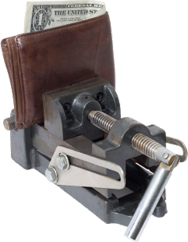Looking for a tax attorney probably seems extremely overwhelming, however, it is of the upmost importance that you choose a tax attorney that is qualified. As you come to know that you require tax relief assistance, the understanding of how significant it is to hire a qualified lawyer to protect your rights comes to light.
assistance, the understanding of how significant it is to hire a qualified lawyer to protect your rights comes to light.
Initiate your search by making a list of a few names of attorneys, either from an online directory or by recommendations. Following this, learn what you can about each one. Make use of the following strategies to guild you in knowing where to look and what to look for.
To make things simple, use the internet. It is simple and effective. Search out each lawyer from your list. Read any news articles about the attorney, read the legal cases they have been involved in along with any legal articles or blogs written by them.
Should you begin to feel like you are just not finding online information on an attorney make some phone calls instead. Make calls to the attorneys or their office directly. Normally, an attorney is willing to make time for a probable client and will answer general questions. You should make inquiries about the attorney’s practicing experience, their experience with tax-related work, and how long they have been practicing. Furthermore, request literature that can be mailed to you telling about their firm or practice.
Lastly, you need to ensure that you investigate any disciplinary action against an attorney. To do this, inquire to the bar association in your local area and the bar association in your state. With the help of these associations you will become knowledgeable about any disciplinary action taken against an attorney. You will also be sure that a lawyer is licensed to practice in your state. In the event that you discover disciplinary action on a potential attorney, it is suggested that you do not choose to hire them.
It can be tiring to research numerous tax attorneys. The benefits of finding the right one, however, can outweigh any time lost. Getting the tax relief you deserve is worth the effort and the right attorney can help you back on the road to financial freedom.
